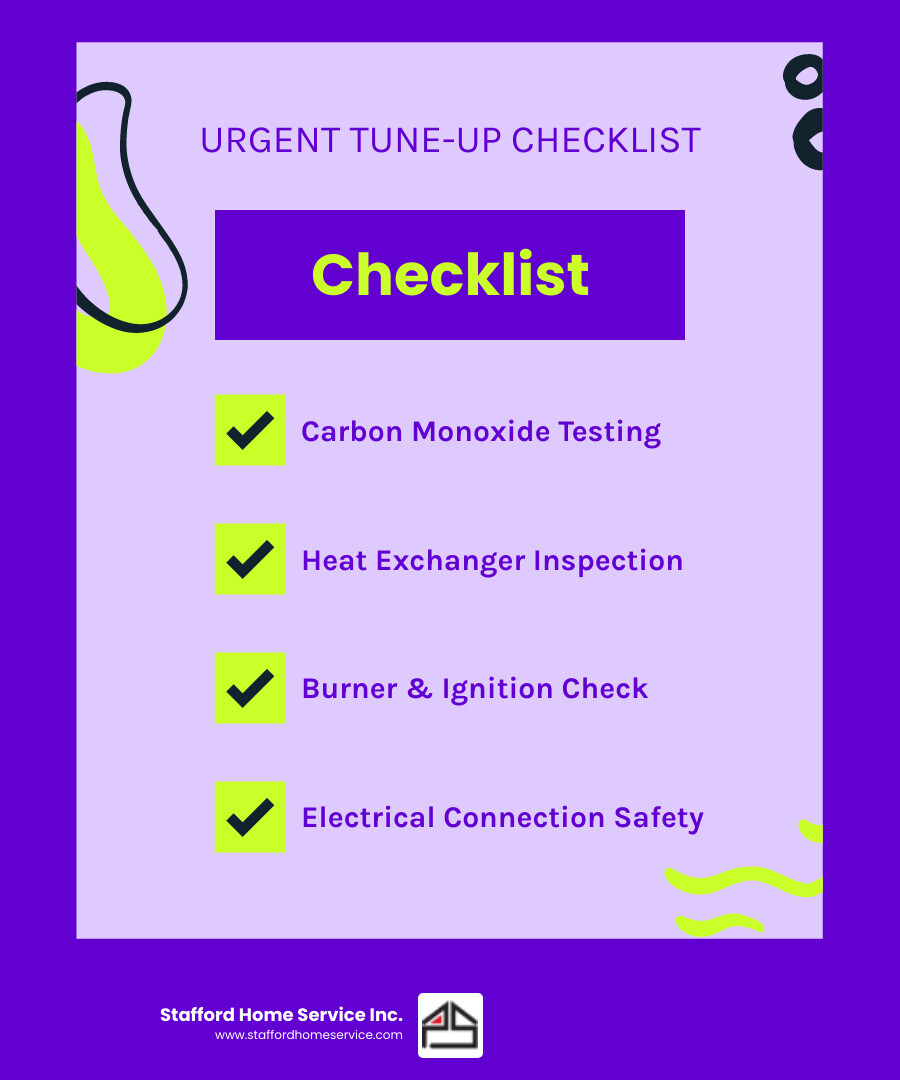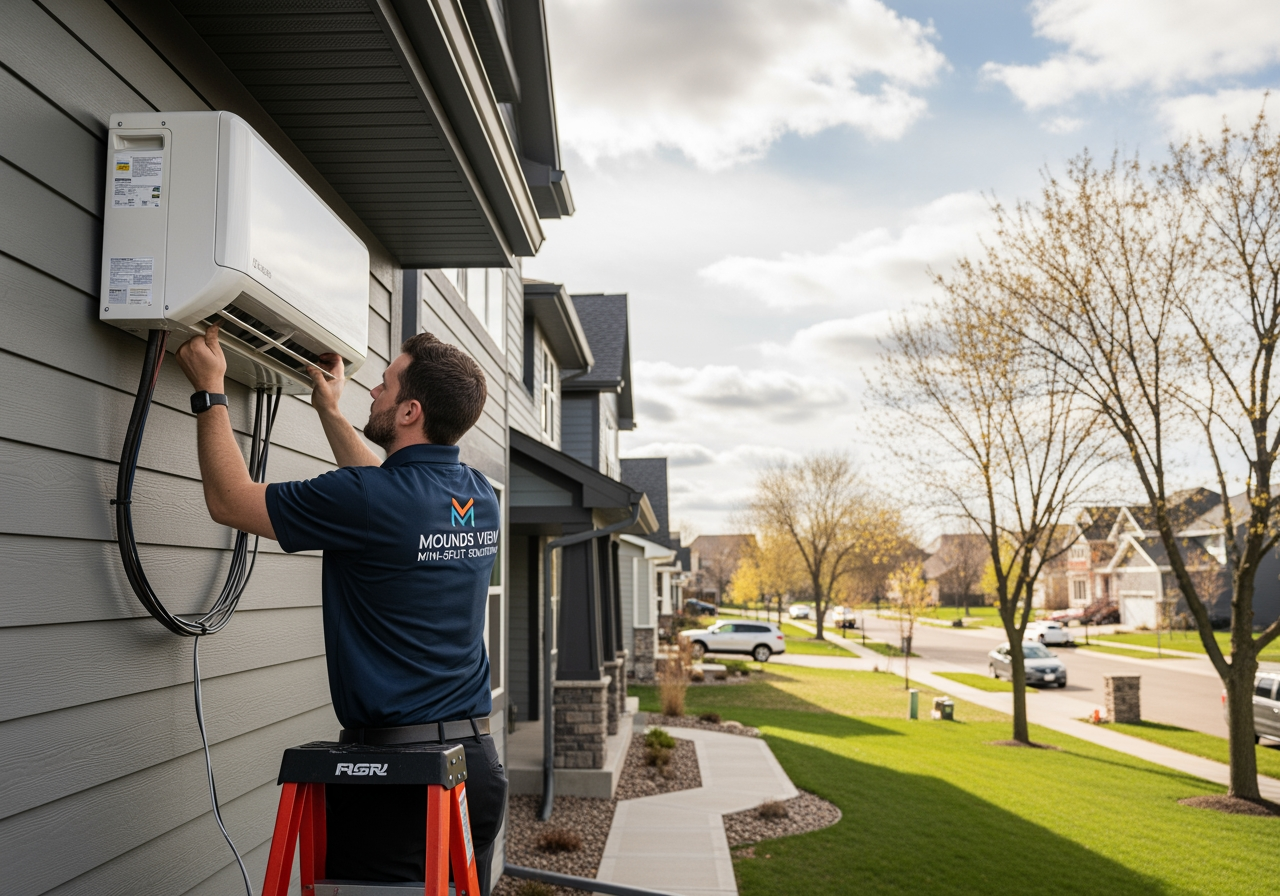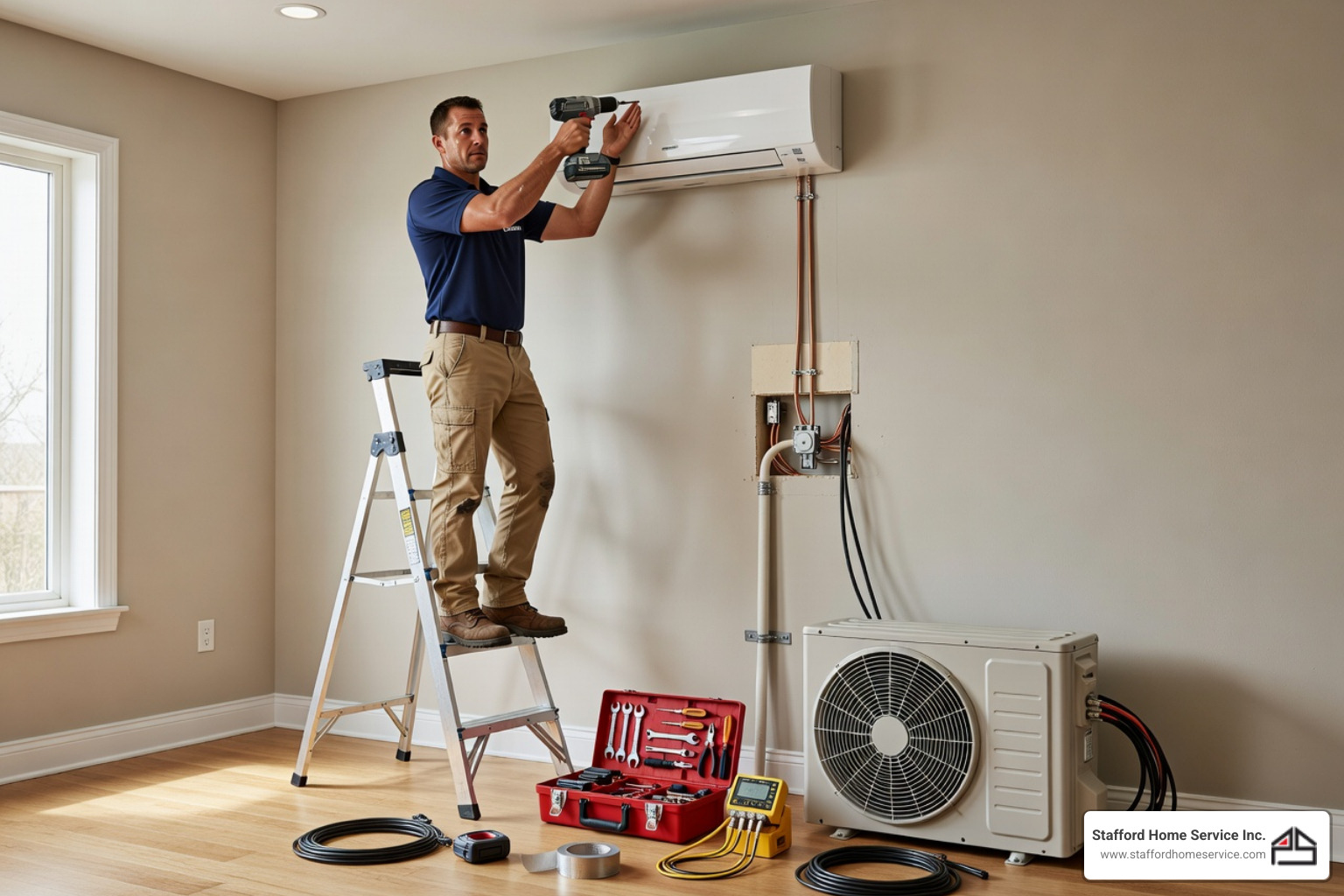Mini Split AC Refrigerant Leak Signs in Minnetonka
Discover signs of refrigerant leaks in Minnetonka. Safeguard your mini split AC and maintain comfort with expert help from Stafford Home Service Inc.
A mini split air conditioner is a popular choice among homeowners in Minnetonka, especially during the warmer months. These systems offer flexible installation options, energy-efficient operation, and room-by-room cooling control without the ductwork of traditional systems. But while they are efficient and compact, mini splits still depend heavily on a sealed refrigerant system to work correctly. When that system starts leaking, even small amounts of refrigerant loss can cause noticeable problems around your home.
Identifying a refrigerant leak early can make the difference between a minor fix and a major expense. Leaks affect the system’s ability to cool your home and may place extra strain on the unit, leading to more wear and higher energy use. Spotting the warning signs and knowing when to act is key to avoiding a bigger breakdown in the middle of summer when indoor comfort matters most.
Common Signs Of A Refrigerant Leak
If your mini split is not keeping up the way it used to, a refrigerant leak might be to blame. There is no single sign that confirms a leak, but certain issues often appear together. Minnetonka homeowners should watch for the following indicators:
- Hissing or bubbling sounds: These noises may come from inside or near the indoor or outdoor unit. They often point to a crack or hole in the refrigerant line.
- Ice buildup on the coils: Refrigerant helps absorb heat during the cooling cycle. When there is not enough of it circulating, coils can freeze over, even in the middle of summer.
- Weaker cooling performance: If it takes longer for your home to cool or some rooms never quite reach the set temperature, the system might be low on refrigerant.
- Rising energy bills: A leaking system often has to run longer and harder than usual, using more electricity and driving utility bills up.
For example, if you notice your living room feels humid and warm despite the unit running all day, and you hear a faint hissing sound nearby, that may be a sign the refrigerant is leaking and needs attention.
Spotting these symptoms early helps minimize damage. Losing refrigerant does not just reduce temperature control, it can also cause long-term strain on the compressor. That is why it is important to take the signs seriously and move quickly before the problem grows worse.
What Causes Refrigerant Leaks in Mini Split AC Systems?
Mini split air conditioners do not usually lose refrigerant unless something has gone wrong. Leaks can take time to develop or happen suddenly, depending on the cause. Knowing what might lead to refrigerant issues can help you understand what is putting your system at risk.
Here are the most common causes homeowners in Minnetonka might run into:
- Corroded coils or connectors: Over time, exposure to moisture and air can cause parts of the copper tubing to corrode. Even small pinhole leaks are enough to let refrigerant escape.
- Poor installation: If your mini split AC was installed incorrectly, it might develop leaks due to loose connections or uneven pressure on the refrigerant lines.
- Regular wear and tear: Like any mechanical system, a mini split can wear down after years of heating and cooling cycles. Vibration and temperature fluctuations can weaken joints and seals.
- Physical damage: Something as simple as accidentally bumping the outdoor unit with lawn equipment or a falling branch during a storm could lead to a crack or puncture that allows refrigerant to leak out.
In some cases, homeowners notice the problem gradually. For example, the guest bedroom might seem more humid than usual, or the unit might blow warm air even though the remote is set to cooling. These minor issues often trace back to a slow leak caused by aging parts or long-term corrosion. Leaving the system running under those conditions can cause more strain and increase the risk of a full breakdown.
Steps to Take When You Suspect a Leak
If you believe your mini split air conditioner is leaking refrigerant, acting quickly is the best way to limit damage. Waiting too long can harm the compressor and reduce overall system performance, leading to more expensive repairs or early replacement.
Here is what Minnetonka homeowners should do if they suspect a refrigerant leak:
1. Turn off the system. Running a mini split that is low on refrigerant can make the problem worse. Shut it down to prevent added strain or overheating.
2. Schedule a professional inspection. Our technicians have the tools and training to safely check for leaks and identify their source.
3. Avoid attempting repairs yourself. Refrigerant handling requires certification for a reason. Let our professionals do the job to prevent safety risks or further damage.
4. Ask about regular maintenance. If your system has not been inspected in a while, now is a good time to get it checked. Preventive maintenance can catch small issues before they turn into leaks.
Even if the unit seems to cool okay most of the time, a drop in efficiency or an unusual sound can point to a hidden leak. Addressing it early can help your cooling system run more reliably through the season.
Why Regular Check-Ups Prevent Bigger Problems
Refrigerant leaks are serious, but they are also avoidable with the right care. Many mini split issues could be spotted earlier if the system was routinely maintained. Regular inspections let our professionals check pressure levels, clean internal components, and look for damage before it leads to a full leak.
A well-maintained mini split runs more efficiently and more quietly, especially during long stretches of heat. When refrigerant levels stay consistent, the system does not have to work as hard, which reduces wear on parts like the compressor and blower motor. Keeping the system in good shape helps protect your energy budget and improves comfort across all rooms using mini split zones.
Leaks can also carry health risks. Refrigerant exposure in enclosed homes can lead to unwanted odors or lack of airflow. That is why professional attention is key. Leaks are not just equipment problems, they affect indoor air and long-term comfort too.
Keeping Your Minnetonka Home Comfortable Year-Round
Staying alert to refrigerant leaks helps protect your home’s cooling performance during the hottest parts of the year. When a mini split starts showing signs of trouble, whether it is weak airflow, frost on the unit, or rising bills, it is worth investigating. These are often symptoms of something deeper that needs attention.
Minnetonka homeowners rely on their mini split air conditioners to keep indoor spaces cool and comfortable, especially when summer temperatures climb. When something is off, do not ignore it. A simple repair today can help avoid major repairs later. Regular maintenance from trained technicians is the most reliable way to keep your system running right and to make sure your home stays cool when you need it most.
Maintaining a well-functioning system is key to preventing further damage, especially when refrigerant leaks become a concern, and timely service can make all the difference in keeping your home comfortable. At Stafford Home Service Inc, we understand the challenges homeowners face with a leaking system, so if you suspect an issue with your mini split air conditioner in Minnetonka, our professionals are ready to address the problem effectively. For a quick estimate or to schedule a service visit, please contact us today.
Customer Testimonials
Our customers consistently praise our knowledgeable technicians, prompt service, and the lasting quality of the work we deliver.









